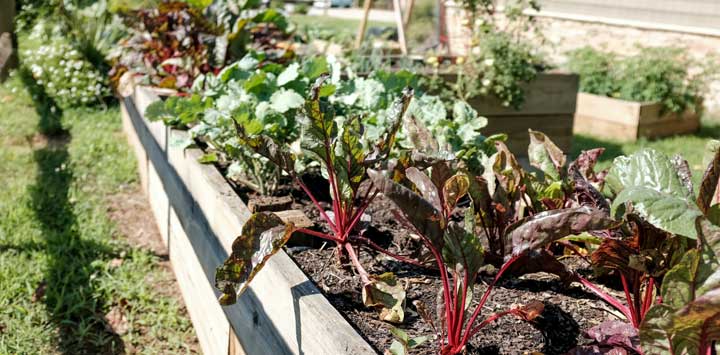Last Updated on November 27, 2023 by Cathy

The first step to taking charge of your health is to start eating a healthier and clean diet. One that will nourish your body and stop the progression of multiple sclerosis (MS). Eating an anti-inflammatory diet will lower your inflammation.
Everyone is different so following a specific diet doesn’t work for everybody. One person may do well eating spinach but it causes problems for the next person.
I follow a Paleo-based diet but you may do better following the Mediterranean diet. As long as you are eating nutrient-dense foods. That will provide the vitamins and minerals your body needs.
Use food as your medicine to stop and reverse MS. Your body has the ability to heal by repairing and replacing damaged cells.
Get a free Symptom Questionnaire at the bottom of this post.
Don’t look at this as a “diet” look at it as a lifestyle change toward better health. Each day feed your body nutrients which include:
- Carbohydrates
- Fats
- Fiber
- Minerals
- Protein
- Vitamins
- Water
Choose high-quality foods to avoid additives, antibiotics, growth hormones, pesticides, and preservatives. Clean food (organic) reduces your toxin exposure and helps your liver to remove toxins. Eat organic foods as much as possible.

If you can’t afford organic produce at least buy organic if it is on the Dirty Dozen list. It shows which produce has the highest amounts of pesticide residues. Plus eat a wide variety of high-quality foods to give your gut beneficial gut bacteria.
Check the Environmental Working Group’s (EWG) website for which fruits and vegetables have the most pesticides.
Whole Plant-Based Foods

Fruit and vegetables should be your main course. Eat them with every meal and for snacks. Fruits and vegetables are good sources of antioxidants, fiber, phytonutrients, and vitamins and minerals. It helps your digestive system and to push toxins out of your body.
Deep-colored fruits and vegetables include antioxidants and anti-inflammatory health benefits. Such as beets, blueberries, carrots, raspberries, and red cabbage. Sulfur vegetables nourish your mitochondria which are in most cells. They also help to remove toxins from cells.
Sulfur vegetables:
- Asparagus
- Broccoli
- Brussel sprouts
- Cabbage
- Cauliflower
- Garlic
- Kale
- Leeks
- Onions
- Radishes
- Watercress
Starchy Fruits and Vegetables
The consumption of starchy fruits and vegetables can be part of a healthy diet, but moderation and balance are key. Starchy foods are a good source of complex carbohydrates, fiber, vitamins, and minerals. They can provide sustained energy and contribute to overall nutritional well-being.
Examples of starchy fruits include bananas, plantains, and certain types of mangoes. Starchy vegetables include potatoes, sweet potatoes, corn, and peas.
While these foods offer nutritional benefits, it’s important to consider the overall composition of your diet and individual dietary needs. Eating a variety of fruits and vegetables, including those with different nutrient profiles, is generally recommended for a well-rounded diet.
If you have specific dietary concerns, such as managing blood sugar levels or weight, it’s best to talk with your doctor. They can provide personalized guidance based on your individual health goals, preferences, and any underlying health conditions. Additionally, be mindful of portion sizes and ensure that your overall diet is diverse and balanced.
Starchy Fruits:
- Bananas
- Plantains
- Certain types of mangoes (such as honey mangoes)
Starchy vegetables:
- Acorn squash
- Beets
- Butternut squash
- Carrots
- Cassava
- Parsnips
- Peas
- Potatoes (including sweet potatoes)
- Pumpkin
Healthy Fats

Avoid trans fats, processed fats, and oils. Lower your intake of omega-6 fats from animal sources. Increase your omega-3 fats found in fish and plant sources. Don’t be afraid to eat healthy fats, they are good for your overall health including your heart.
Healthy fats:
- Avocados
- Chia seeds
- Coconut milk, full-fat
- Coconut oil
- Fatty fish (salmon, sardines, trout, tuna, etc.)
- Flaxseeds, ground
- Nuts (almonds, pecans, walnuts, etc.)
- Olive oil
Don’t consume too much fat in one day.
Proteins

Your body needs protein to make hormones and enzymes. They help build your cartilage, bones, and muscles. Your hair, nails, and skin are mostly made of protein. You get protein from animal sources and plants.
Protein sources:
- Animals (beef, chicken, lamb, pork, etc.)
- Avocados
- Broccoli
- Chia seeds
- Fish
- Flaxseeds
- Nuts
- Pumpkin seeds
- Spirulina
When it comes to eating proteins eat organic produce and meats. If you are eating conventionally raised meats then you are eating what they eat. That means you are eating GMO grains and soy. Don’t consume too much animal protein in one day.
Get a free Symptom Questionnaire at the bottom of this post.
Soy is a good source of protein. However, most soy sold in the United States is from a GMO, it is also a legume. If you are looking for soy sauce to use in a recipe, use coconut aminos instead.
Eat high-quality meats that are free of antibiotics, hormones, and GMOs. They should be humanely raised and have room to roam. These animals live a quiet, stress-free life. Which produces better-improved animal health.
As the saying goes:
You are what you eat
Look for:
- Grass-fed meats (beef, bison, lamb, pork, etc.)
- Pasture-raised poultry (chicken, duck, quail, turkey, etc.)
- Wild-caught fish
Limit the amount of red meat you eat since it’s linked to higher levels of inflammation. Instead, eat more fatty fish which is high in omega-3s.
Avoid Grains and Dairy

Grains and dairy are highly inflammatory for people with MS. Some people do okay eating non-gluten grains like quinoa. However, non-gluten grains can also contain similar proteins. This can cause damage to the gut lining and feed unfriendly bacteria.
Dairy also causes inflammation causing symptoms such as acne, bloating, diarrhea, and gas. Many people are lactose intolerant or react to the proteins found in milk – casein or whey. Plus, conventional cows receive growth hormones to produce more milk.
Some people find drinking raw grass-fed, goat, or sheep’s milk. Everyone reacts differently so you will need to see how your body reacts.
Non-dairy alternatives:
- Almond
- Cashew
- Coconut, full-fat
- Hemp
- Macadamia
Look for milk alternatives labeled as ‘unsweetened.’ If it is in a can look for ‘BPA-free’ to avoid toxins in the liner of the can. There are many recipes online for making your own nut milk. It is easy if have a high-speed blender plus it will save you a lot of money.
Cut Back on Sugar
I’m sure you know how bad refined sugar is for you. Sugar is addictive and it’s found in most processed foods. But it is not only refined sugar you have to watch for.
Natural sugars:
- Coconut sugar
- Fruit
- Honey, raw
- Maple syrup
Some people are afraid of eating fruit due to its sugar content. But, fruit is high in fiber so it doesn’t spike your blood sugar as refined sugar does. Plus, fruit is full of antioxidants, fiber, phytonutrients, vitamins, and minerals.
Quick Links To Information In This Post:
Live An Anti-Inflammatory Lifestyle
Healthy Fats Improve Your Health
How Sugar Causes Inflammation
Take Charge of Your Health
This is a total change if you’re used to eating the typical Western diet. But, to stop and reverse MS you need to eat healthy to keep your immune system strong. Each day focus on healthy eating, exercise, taking deep breaths, and getting quality sleep. And this is very important – learn to manage your stress.
You can do this!

Symptom Questionnaire
Subscribe for free and I’ll send you the password to my secret library filled with many printables including the Symptom Questionnaire to keep track of your symptoms.
Want to remember this health tip? Pin it to your favorite Pinterest board!

Resources:
The Dietary Intake of Wheat and other Cereal Grains and Their Role in Inflammation
https://www.ncbi.nlm.nih.gov/pmc/articles/PMC3705319/#!po=30.2632







